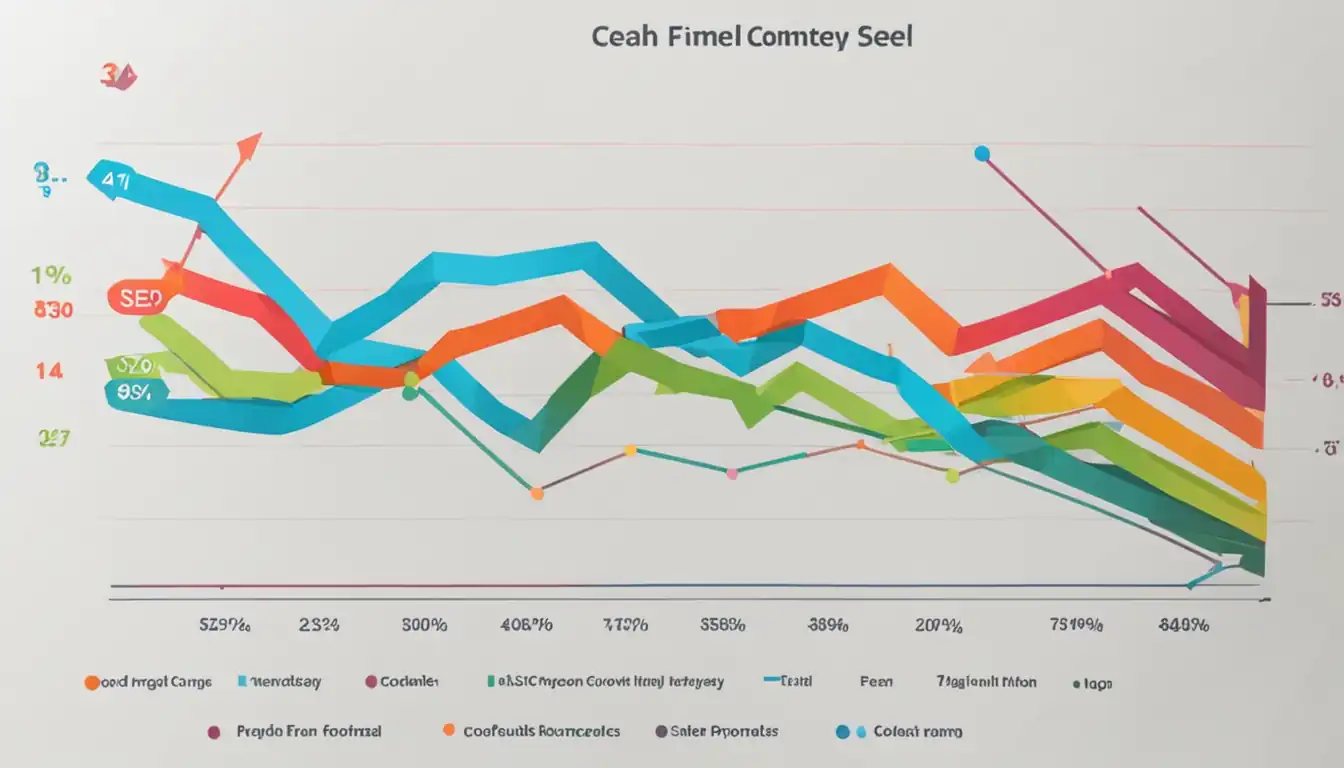Content Performance Tracking for SEO
In the fast-paced world of digital marketing, keeping track of your content's performance is crucial for staying ahead of the competition. Content-driven SEO is a powerful tool that can help boost your website's visibility and drive organic traffic. But how do you know if your efforts are paying off? That's where content performance tracking comes in. In this post, we'll explore the ins and outs of monitoring your content's success and share some valuable tips for improving your SEO strategy.
Understanding Content Performance in the Digital Age
In today's digital age, content performance tracking is crucial for the success of any SEO strategy. With the vast amount of content available online, it is essential to understand how your content is performing and what impact it is having on your overall SEO efforts.
The Role of SEO in Content Strategy
SEO plays a vital role in content strategy by ensuring that your content is optimized for search engines. By incorporating relevant keywords, meta tags, and other SEO best practices into your content, you can improve its visibility and reach a larger audience. Additionally, SEO helps drive organic traffic to your website, increasing the chances of converting visitors into customers.
Measuring Success Beyond Rankings
While rankings are an important metric to track, they do not provide a complete picture of your content's performance. It is essential to look beyond rankings and consider other factors such as click-through rates, engagement metrics, and conversions. By analyzing these additional metrics, you can gain valuable insights into how well your content is resonating with your target audience and make data-driven decisions to optimize future content strategies.
Pro Tip: Utilize tools like Google Analytics and Search Console to track key performance indicators and gain a comprehensive understanding of how your content is performing in the digital landscape.
Key Metrics to Track for SEO Success

When it comes to tracking the performance of your content for SEO purposes, there are several key metrics that you should pay close attention to. By monitoring these metrics, you can gain valuable insights into how well your content is performing and make informed decisions on how to optimize it for better results.
Organic Traffic Insights
One of the most important metrics to track for SEO success is organic traffic. This refers to the number of visitors that come to your website through organic search results on search engines like Google. By analyzing organic traffic data, you can see which pages are driving the most traffic, identify trends in visitor behavior, and measure the impact of your SEO efforts.
Engagement Metrics That Matter
In addition to tracking organic traffic, it's also crucial to monitor engagement metrics that indicate how users are interacting with your content. Some key engagement metrics to track include:
- Bounce Rate: The percentage of visitors who navigate away from your site after viewing only one page.
- Average Session Duration: The average amount of time visitors spend on your site.
- Pages Per Session: The average number of pages visitors view during a single session.
- Conversion Rate: The percentage of visitors who take a desired action on your site, such as making a purchase or signing up for a newsletter.
By keeping an eye on these engagement metrics, you can gauge the effectiveness of your content in capturing and retaining the interest of your audience. This information can help you identify areas for improvement and tailor your content strategy accordingly.
Tools of the Trade for Effective Tracking
![]()
Google Analytics and Search Console Deep Dive
Google Analytics and Search Console are essential tools for tracking the performance of your content in terms of SEO.
Google Analytics: This tool provides valuable insights into website traffic, user behavior, and conversion rates. By analyzing data such as organic search traffic, bounce rates, and page views, you can determine which content is performing well and which may need optimization.
Search Console: Search Console allows you to monitor how your site is indexed by Google and identify any issues that may be affecting its visibility in search results. You can track keyword rankings, click-through rates, and impressions to gauge the effectiveness of your content strategy.
Leveraging Third-Party SEO Tools
In addition to Google's own tools, there are a variety of third-party SEO tools that can enhance your content performance tracking efforts.
SEMrush: SEMrush offers features such as keyword research, backlink analysis, and competitor tracking. By utilizing these tools, you can gain a better understanding of how your content is ranking compared to competitors and identify opportunities for improvement.
Ahrefs: Ahrefs is another powerful tool for monitoring backlinks, conducting keyword research, and analyzing site traffic. With Ahrefs, you can track the success of your link-building efforts and make data-driven decisions to improve your SEO strategy.
By leveraging a combination of Google Analytics, Search Console, and third-party SEO tools, you can effectively track the performance of your content and make informed decisions to optimize your SEO strategy.
Strategies for Improving Content Performance
When it comes to improving content performance for SEO, there are several key strategies that can be implemented. By focusing on both on-page optimization techniques and building a backlink strategy, you can help your content rank higher in search engine results pages (SERPs) and drive more organic traffic to your website.
On-Page Optimization Techniques
On-page optimization is crucial for ensuring that your content is easily discoverable by search engines. By implementing the following techniques, you can improve the visibility of your content and increase its chances of ranking well in SERPs:
Keyword Research: Conduct thorough keyword research to identify relevant keywords that your target audience is searching for. Use these keywords strategically throughout your content to optimize it for search engines.
Optimized Meta Tags: Ensure that your meta title and meta description accurately reflect the content of your page and include relevant keywords to improve click-through rates.
Quality Content: Create high-quality, valuable content that addresses the needs and interests of your target audience. Well-written, informative content is more likely to attract backlinks and rank well in search results.
Internal Linking: Use internal links to connect related pages on your website, helping search engines understand the structure of your site and improving user experience.
Building a Backlink Strategy
Backlinks play a significant role in determining the authority and relevance of your content in the eyes of search engines. By building a strong backlink profile, you can improve the performance of your content and boost its rankings in SERPs:
Guest Blogging: Write guest posts for reputable websites in your industry, including a link back to relevant pages on your site to attract quality backlinks.
Broken Link Building: Identify broken links on other websites within your niche and reach out to offer replacement links from your own site.
Outreach Campaigns: Develop relationships with influencers, bloggers, and journalists who may be interested in sharing or linking to your content.
By implementing these strategies for improving content performance through on-page optimization techniques and building a backlink strategy, you can enhance the visibility and effectiveness of your SEO efforts.
Case Studies and Success Stories

Real-Life Wins in Various Industries
Content performance tracking for SEO is not just a theoretical concept; it has real-world applications that have yielded significant results across various industries. By examining case studies and success stories, we can gain valuable insights into the power of content-driven SEO strategies.
E-commerce Success Story:
- A leading e-commerce company implemented a comprehensive content strategy focusing on long-tail keywords and high-quality backlinks.
- Resulted in a 30% increase in organic traffic and a 20% boost in conversion rates within six months.
- Key takeaway: Targeting specific, niche keywords can drive targeted traffic and improve conversion rates.
Healthcare Case Study:
- A healthcare provider optimized their website content with relevant medical information and patient resources.
- Saw a 50% increase in organic search visibility and a significant rise in appointment bookings.
- Lesson learned: Providing valuable, informative content can establish authority in the industry and attract potential customers.
Lessons Learned from Failed Attempts
While success stories are inspiring, there are also valuable lessons to be learned from failed attempts at content performance tracking for SEO. Understanding these pitfalls can help avoid common mistakes and optimize future strategies for better results.
Tech Startup Failure:
- A tech startup focused solely on keyword stuffing without considering user experience or quality of content.
- Resulted in a Google penalty, plummeting rankings, and loss of credibility among users.
- Takeaway: Keyword optimization should always prioritize user intent and relevance over quantity.
Travel Agency Misstep:
- A travel agency neglected to update outdated content on their website, leading to decreased organic traffic over time.
- Despite initial success, lack of maintenance caused a decline in search engine rankings.
- Lesson learned: Regularly updating and refreshing existing content is crucial for maintaining SEO performance.
In conclusion, analyzing both successful case studies and failed attempts provides valuable insights into effective content performance tracking for SEO. By learning from real-life examples across different industries, businesses can refine their strategies to achieve sustainable growth and visibility online.
Understanding Content Performance in the Digital Age

In today's digital age, having a strong online presence is essential for businesses looking to reach their target audience. The Role of SEO in Content Strategy plays a vital role in ensuring that your content gets seen by the right people. By optimizing your website and creating high-quality, relevant content, you can improve your search engine rankings and attract more visitors. However, Measuring Success Beyond Rankings is equally important. It's not just about getting to the top of Google – it's about engaging with your audience and driving meaningful results.